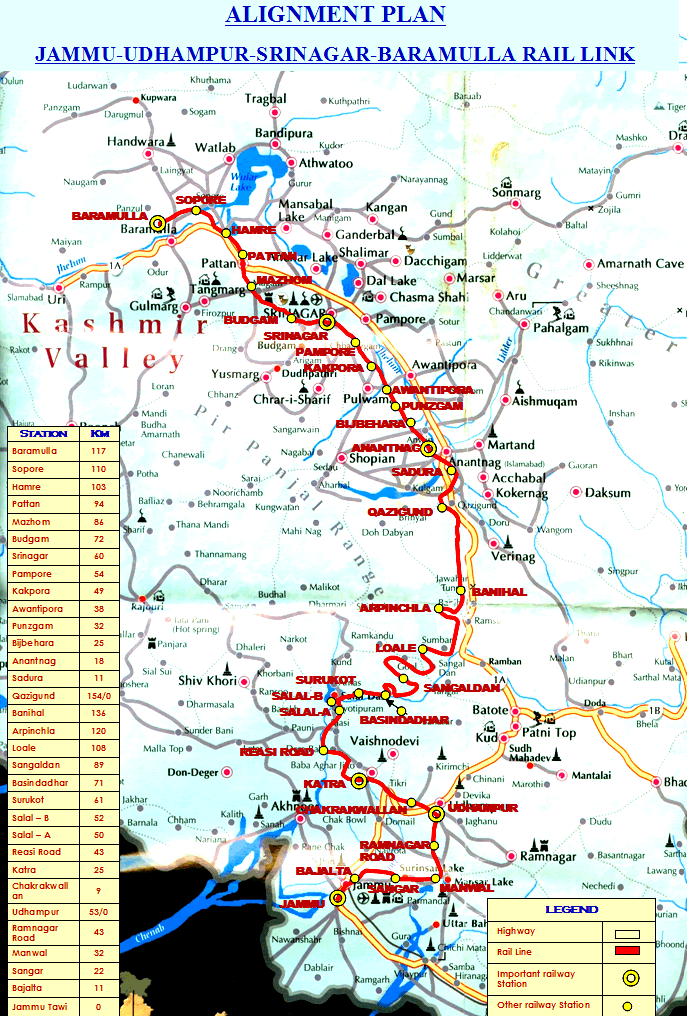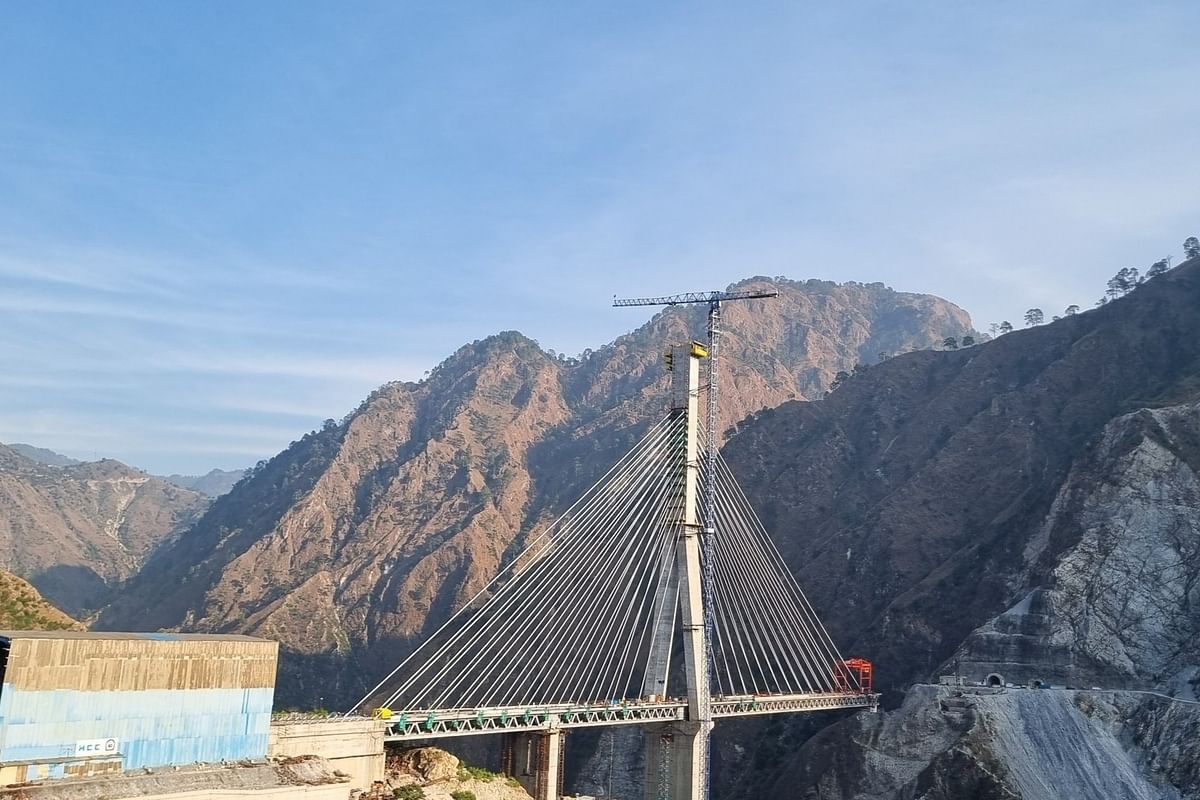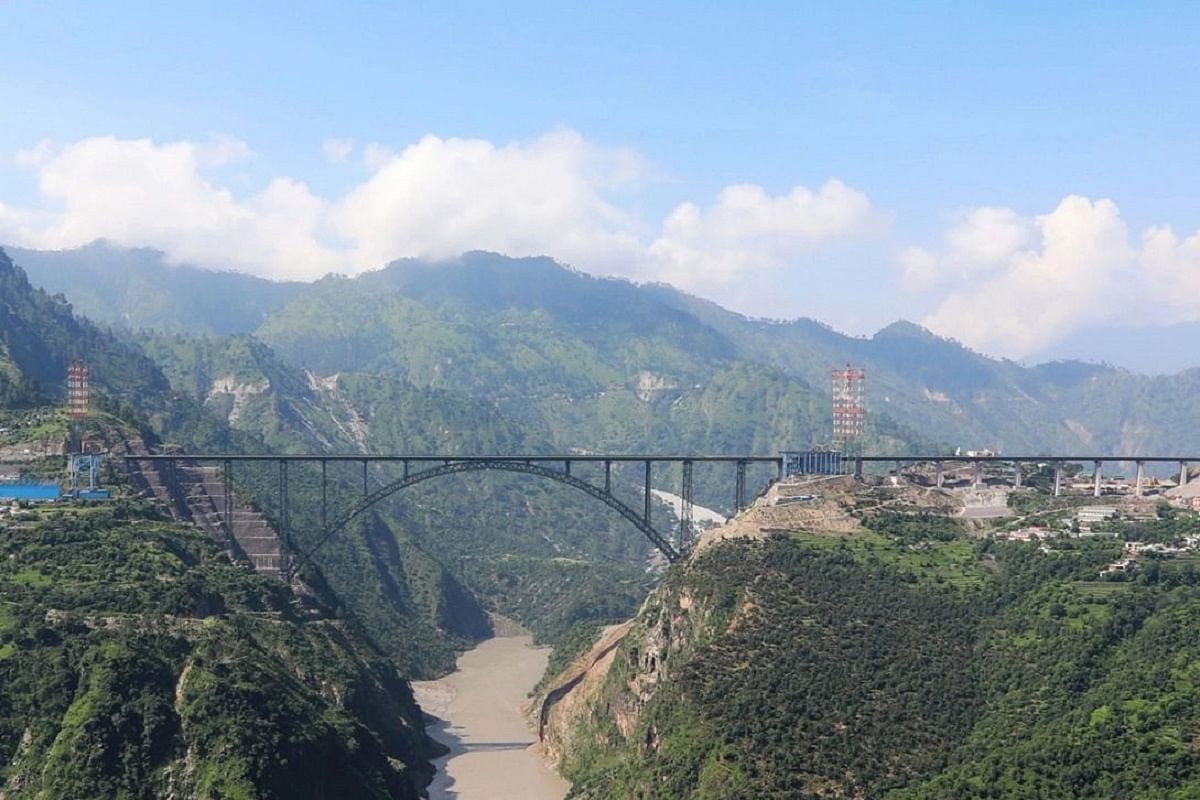- It aims to connect the Kashmir region with the rest of the country.
The 272-km ambitious Udhampur – Srinagar – Baramulla Rail Link (USBRL) project for the construction of a broad-gauge railway line through the Himalayas is now 90 per cent complete according to the Indian Railways.
It aims to connect the Kashmir region with the rest of the country.
The Katra-Banihal Section’s 162.6 km of tunnel mining and 31.3 km of total 117.7 km of track laying have both been finished, according to a tweet from Indian Railways.
Additionally, 11 minor bridges and 21 of the total 26 main bridges were completed.
Three segments of the train line—25 km from Udhampur to Katra, 18 km from Banihal to Qazigund, and 118 km from Qazigund to Baramulla—have been completed.
Work on the intervening 111-kilometre Katra-Banihal section, the most arduous and treacherous portion due to its geology and extensive riverine system replete with deep gorges, is ongoing.
Train service is available between Jammu-Udhampur-Katra and Baramulla-Banihal in the Kashmir Valley.

The cost of construction of the 111 km long Katra-Banihal section so far has been Rs 30,672.34 crore.
The budget allocation to the project has increased manifold since 2014, enabling speedy construction activity.
The General Manager of Northern last year May made a statement that Kashmir will be connected with the rest of the country through the railway link by the end of 2023, reports Financial Express.

Salient Features of USBRL project
It is the most difficult railroad undertaking by Indian Railways since independence. The project was declared a National Project in March 2002.
Institutions like IIT Delhi, IIT Roorkee, Geographical Survey of India and DRDO are providing expertise in project planning and implementation.
The alignment contains numerous tunnels and bridges amid the challenging hilly terrain of the Himalayas. More than 200 km long approach road with 320 tiny bridges was built to get to the construction site.
This route will also see the construction of the world’s highest railway bridge and India’s first cable-stayed Railway Bridge, i.e Anji Khad bridge. It is coming up at a height of 331 metres above the river bed to connect Katra with Reasi in the Kashmir rail link project.

On the other hand, Chenab Bridge which is the world’s highest railway bridge is also part of this project. It is nearing completion.Once completed, this bridge will loom over the treacherous Chenab, flowing some 359 metres below.
This bridge is 1,315 metres long and is the highest railway bridge in the world, being 359 metres above the river bed level. It will be 35 metres higher than the iconic Eiffel Tower in Paris.

Project Challenges
- Inaccessible places
- The Young Himalayan Mountains’ Complex Geology
- From 2008 to 2016, numerous Public Interest Litigations (PIL) in the High Court had a negative impact on the project.
- Law and order concerns
- Unusual Weather Situations (Rainfall & Snowfall prone area)
- The COVID-19 Effect
Significance of the project
After completion, this line will be an all-weather convenient and cost-effective mass transportation system and will act as a catalyst for the overall development of the northernmost alpine region of the country.
This project has great significance for security and socio-economic development. It can play an important role in rapid industrialisation, movement of raw materials and finished products from J&K and encourage trade and tourism in the region apart from providing opportunities for employment.


